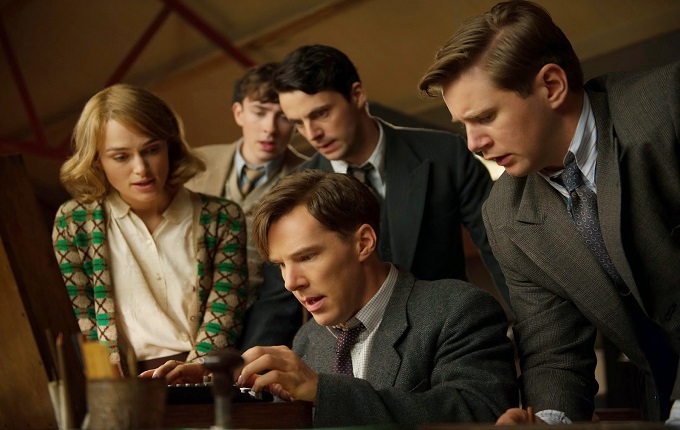The Imitation Game Review

The Plot
The Imitation Game is a poignant biopic of Alan Turing, the real life British maths genius who is widely credited with turning the tide of World War II by leading a team of mathematicians and code breakers in their efforts to crack the German Enigma code. The film explores both Turing’s pivotal role in the birth of computer science and the tragic personal demons he wrestled with.
The Good
Benedict Cumberbatch is an actor best known and internationally adored for playing a heroic but socially awkward genius on BBC’s Sherlock. It’s a role which the sharp witted and cheekboned British star is uniquely well equipped for. Playing Alan Turing, another socially awkward British genius and unlikely hero could easily be dismissed as comfortable typecasting. However what’s most truly impressive about Cumberbatch’s flawless portrayal is all the ways in which it isn’t simply Sherlock doing maths.
Cumberbatch paints a passionate complete portrait of a brilliant and utterly unique man. Though imbued with much of the same brashly intelligent charm and soft voiced gravitas that makes his portrayal of Sherlock so compelling, it is immediately distinguished by more fragile and tragic undertones.
Keira Knightley also thrives in a role where her clipped upper class accent is an asset not a distracting handicap. Knightley succeeds in delivering a useful counterpart for Turing as a romantic and mental companion. Combined with a deft performance from Cumberbatch, the pair creates a relationship which is immediately awkward and intimate in equal measure.
Though Cumberbatch will rightly grab the accolades and awards, in truth The Imitation Game is one of very best ensemble casts to grace the screens in recent years. Every cog in the machinery of this film fits its place perfectly and delivers compelling results. Charles Dance as a stern Navy Commander, Matthew Goode as a caddish maths boffin and Mark Strong as a sly MI6 agent are just a handful of example of the kind of sublime casting perfection the film achieves.
A thoughtful and well-paced script manages to balance telling a story about one man’s extraordinary if often troubled life, against the grand backdrop of war and inhuman global destruction. Though moments of triumph are consistently tinged with sadness, overall he film is an uplifting experience that conveys just how much technological and social advancement has been made since the miraculous events it depicts.
The Imitation Game isn’t just a story about the birth of computers, wars and government code breaking secrets. It is an immersive emotional biopic of a complicated but undeniably important man. Someone who gave the world precisely what it needed just when it needed it the most.
The Bad
Those familiar with the real life details of Alan Turing’s fate will no doubt have an entirely different perspective to younger or uninformed audiences. It may be that if you are armed with such knowledge it may be difficult to ignore it throughout. However the film subtly plays with time and narrative structure to ensure that the story thrives regardless of whether or not audiences are already aware of how things end.
The Ugly Truth
The Imitation Game serves as a fitting tribute to an almost forgotten hero. It’s a well-crafted historical biopic that shrewdly juxtaposes the grand theatre of world war with the intimate struggles and relationships of some of the least likely war heroes. Benedict Cumberbatch in particular delivers a performance that should almost certainly provide the answer to the question And the Oscar for Best Actor goes to…